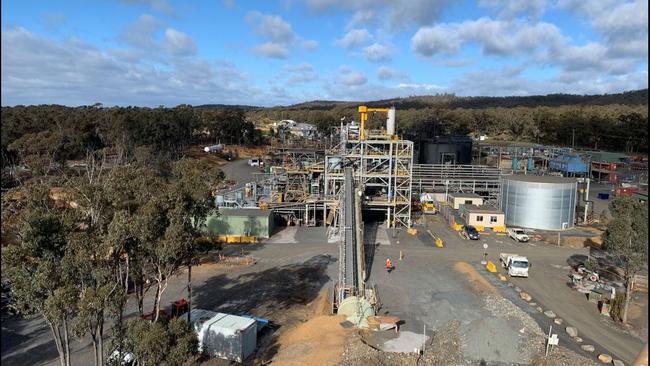Dispute over noise levels at Fosterville Gold Mine ends in court
A mining giant in regional Victoria is hauled before the court over claims excessive noise from its operation is making life miserable for nearby residents.

Bendigo
Don't miss out on the headlines from Bendigo. Followed categories will be added to My News.
Residents of a small Victorian town have taken a mining company to court over claims noise from its operation is making their lives miserable.
The Supreme Court has given Axedale residents Kirsty McDonald and Karen Oliver the greenlight to take their claim against Fosterville Gold Mine Pty Ltd, east of Bendigo, to trial.
The residents, who live about 3km from the mine, allege excessive noise since about June 2020 has prevented them from sleeping and deprived them from using certain rooms in their home.
They further claim noise forces them to seek respite elsewhere such as in their car, campervan or with family and friends.
They can’t host visitors and excessive noise causes headaches, nausea, ear pain, heart palpitations, and body vibration, they claim.
In response, lawyers for the mine argued noise levels measured at the residents’ property were typical of a quiet rural environment and were below the threshold prescribed by Environment Protection Authority Victoria guidelines.

The mine said its operations were carried out in accordance with the terms of the permits and approvals granted by the relevant regulatory authorities.
The company applied to have the proceedings halted on the basis the residents’ claims had no prospect of succeeding and were an abuse of process.
But Associate Justice Melissa Daly ruled conflicting reports by experts on, among other issues, noise emissions filed in court meant claims involving complex factual and technical disputes should be dealt with at trial.
“This is a matter in which the court is being drawn into a “mini-trial” to determine complex facts in respect of the source of the noise emissions and the levels and characteristics of noise and how they should be assessed — and without the benefit of oral evidence from the experts or the testing of that evidence by cross-examination,” she said.
While she accepted Ms McDonald and Ms Oliver may have difficulty proving their case at trial, she said their claims could not be described as preposterous, incredible or improbable.



